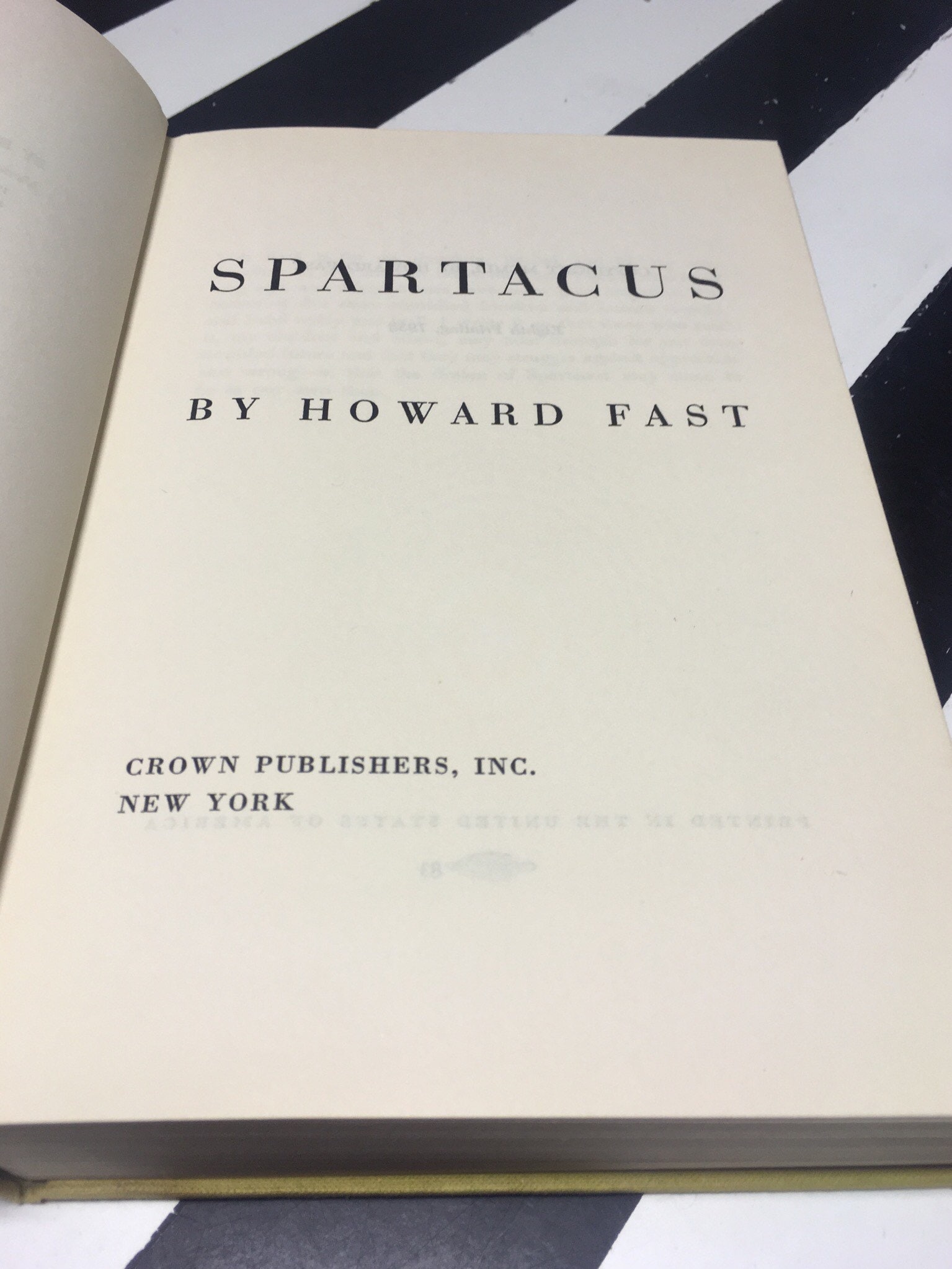

Caius the son of a wealthy patrician and his two sister decide to travel to Capua down the Appian way that has just been reopened with the decaying bodies of the crucified slaves lining the route. The story of the slave revolt is told largely from the viewpoint of those people who knew Spartacus or the history of the uprising.

Fast's book covers these themes too but also attacks the whole moral fibre of the Roman Empire. The message from the film is the fight against injustice and the right to be free. Stanley Kubrick's film has become more famous than the book on which it is based and as good as the film is, it is conceived as an entertainment: albeit with a moral message. The Tokens of Punishment: the 6000 slaves crucified along the length of the Appian way from Rome to Capua in 71BC forms the grisly backdrop to the opening scenes of the novel and they are never far away as the story of the slave revolt led by Spartacus unrolls. This may account for his damming indictment of the Roman civilisation which was based on slavery.

War and prison are difficult for a writer to approach without seeing something of it himself. Fast says in the foreword to the 1996 edition that he owes something of its coming into being as a result of his time in prison: He had served a short prison sentence the previous year for the crime of committing un-American activities in the McCarthy era and he could not find a publisher for the novel that he had conceived in prison. Howard Fast published Spartacus himself in 1951.


 0 kommentar(er)
0 kommentar(er)
